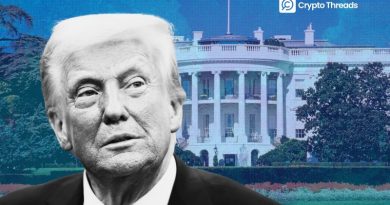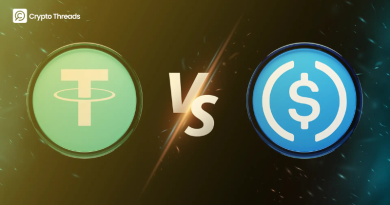Hong Kong proposes lighter capital rules for banks holding crypto
Hong Kong’s monetary regulator is moving to ease the capital burden for banks that hold certain cryptocurrency assets, reinforcing the city’s ambition to position itself as a leading global crypto hub.
- HKMA draft guidance suggests softer capital requirements for banks holding approved crypto assets.
- Applies to crypto built on permissionless blockchains, if issuers show strong risk management.
- Framework aligns with Basel Committee global capital standards set to take effect in early 2026.
- Part of Hong Kong’s broader push to create a crypto-friendly regulatory environment.
The Hong Kong Monetary Authority (HKMA) has circulated a consultation paper proposing more lenient capital requirements for banks that hold specific categories of cryptocurrency assets, according to a report from financial outlet Caixin.
The paper introduces a new supervisory policy manual module, CRP-1, which explains how crypto assets should be classified under the Basel Committee on Banking Supervision’s global capital standards. These standards — an international benchmark for how banks manage risk — are scheduled to be implemented in Hong Kong in early 2026.
The draft guidance, sent to local banks for feedback, focuses on crypto assets that operate on permissionless blockchains such as Ethereum or Bitcoin. Under the proposal:
- Banks could apply lower capital requirements to certain crypto holdings if issuers demonstrate effective risk management and mitigation measures.
- The HKMA’s approach seeks to align global Basel rules with Hong Kong’s regulatory framework, balancing innovation with financial stability.
This initiative underscores Hong Kong’s pro-crypto stance, which sharply contrasts with mainland China’s ongoing ban on crypto trading and mining. The city has already introduced licensing frameworks for crypto exchanges and stablecoin issuers, giving regulated players a clearer path to operate.
In August 2025, Hong Kong’s Securities and Futures Commission tightened rules for licensed crypto trading platforms, requiring them to strengthen custody practices to protect client assets. Together with the new capital proposal, these moves show a comprehensive strategy to attract institutional participation while keeping systemic risks in check.
Final Thought
By easing capital requirements for banks willing to hold approved crypto assets, Hong Kong is signaling that it wants to be more than a regional fintech center — it aims to be a global leader in digital finance. If finalized, the policy could encourage traditional banks to engage more actively with crypto markets, accelerating institutional adoption in Asia and beyond.



